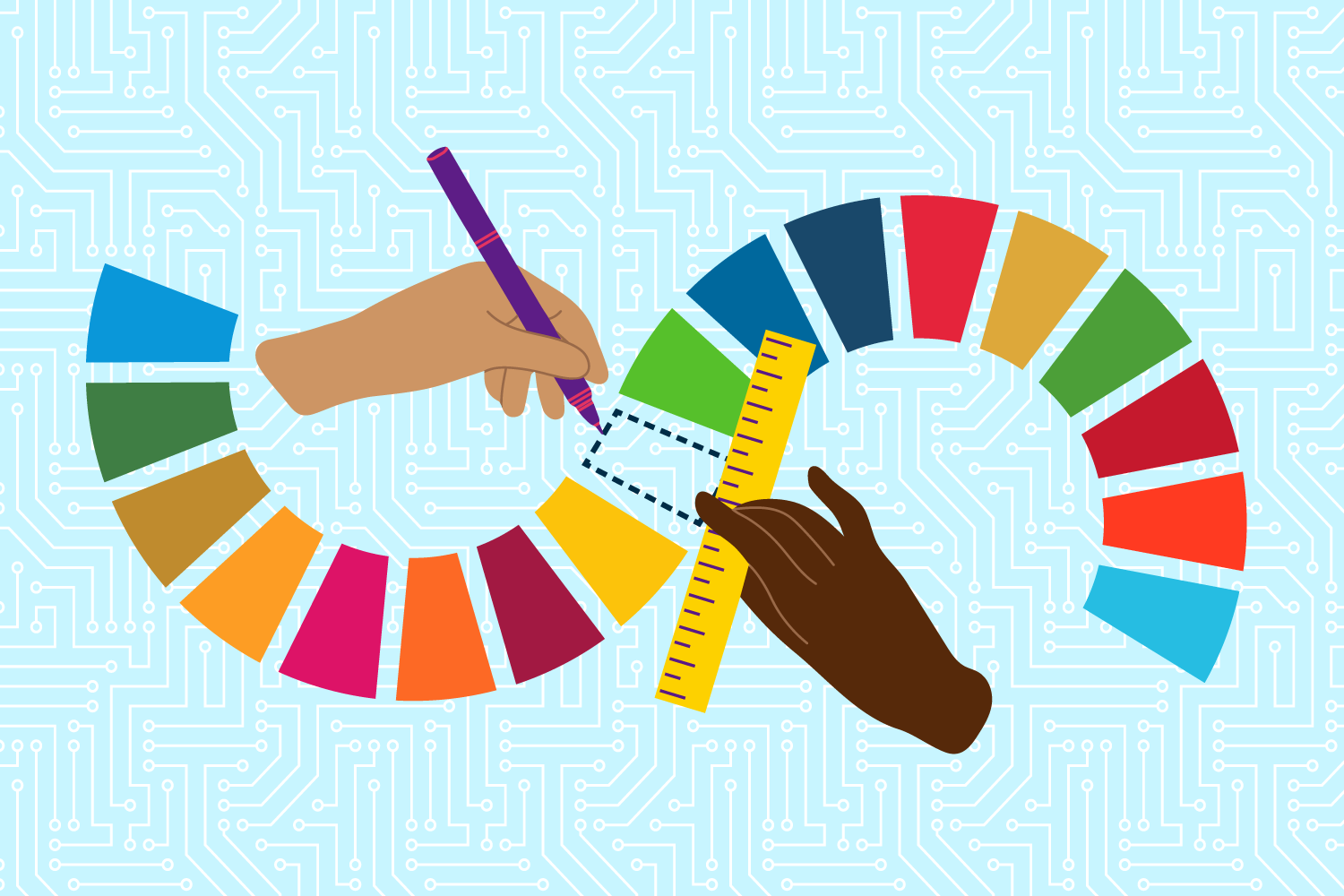By Francisco Jure, Public Policy Fellow, Aspen Digital
AI is accelerating fast, but so far, most of its power has been optimized with a narrow set of goals that, in many cases, do not reflect public needs and aspirations. As with past waves of innovation, metrics of success are crafted to achieve specific outcomes—often business-oriented—that ultimately set the trajectory of technological evolution. This logic of measurement has long shaped not only innovation but also international development, where similar tensions between measurable outcomes and public needs have persisted. Today, AI benchmarks risk reproducing those blind spots, but this can be avoided with deliberate coordination and community engagement.
This piece explores how accumulated knowledge about measurement and development can help steer AI toward public needs, and how AI, in turn, can contribute to addressing development goals more systemically. Rethinking what we measure—and how we measure it—may be key to advancing AI for development. Building on historical patterns and structural incentives, the report argues for a shift toward community-aligned AI benchmarks that bridge innovation with lived realities, delivering outcomes that are not only measurable but truly transformative.

